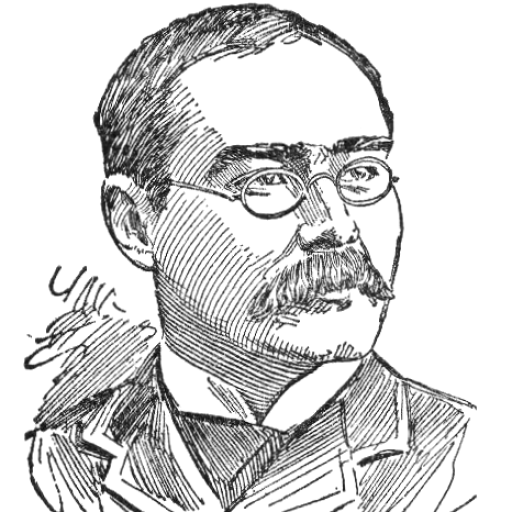Myself, I’d just as soon as not / Respect the man I fight.
The narrator of this poem is a “regular”, a man of limited education (to judge by his accent) but a professional soldier, who takes pride in his skill and respects any man who is good at it. He met such a worthy adversary in ‘Piet’, the archetypal Boer. The Boers – Dutch settlers of South Africa – took on the entire British Empire rather than give up their independence.
The Boer War was fought between Great Britain and the Boer Republics (Transvaal and Orange Free State) from 1899 to 1902. These were two wholly unequal adversaries: the total British military strength in South Africa reached nearly 500,000 men, while the Boers could muster no more than about 88,000. The Boers were desperately short of ammunition, food and clothing – “The wonder wasn’t ‘ow ‘e fought, but ‘ow ‘e kep’ alive” – but they had superior horsemanship, intimate knowledge of the terrain, and plain Dutch obstinacy.
Having been defeated in stand-up battles, the Boers resorted to guerrilla warfare – not a war of army against army, but of man against man, in which there were plenty of occasions for individuals to meet as human beings and gain through deadly duels genuine respect and fondness for each other, which inspires every line of this poem.
Piet
I do not love my Empire's foes, Nor call 'em angels; still, What is the sense of 'atin' those 'Oom you are paid to kill? So, barrin' all that foreign lot Which only joined for spite, Myself, I'd just as soon as not Respect the man I fight. Ah, there, Piet! - 'is trousies to 'is knees, 'Is coat-tails lyin' level in the bullet-sprinkled breeze; 'E does not lose 'is rifle an' 'e does not lose 'is seat. I've known a lot 'o people ride a dam' sight worse than Piet. I've 'eard 'im cryin' from the ground Like Abel's blood of old, An' skirmished out to look, an' found The beggar nearly cold. I've waited on till 'e was dead (Which couldn't 'elp 'im much), But many grateful things 'e's said To me for doin' such. Ah, there, Piet! whose time 'as come to die, 'Is carcase past rebellion, but 'is eyes inquirin' why. Though dressed in stolen uniform with badge o' rank complete, I've known a lot o' fellers go a dam' sight worse than Piet. An' when there wasn't aught to do But camp and cattle-guards, I've fought with 'im the 'ole day through At fifteen 'undred yards; Long afternoons o' lyin' still, An' 'earing' as you lay The bullets swish from 'ill to 'ill Like scythes among the 'ay. Ah, there, Piet! - be'ind 'is stony kop - (1) With 'is Boer bread an' Biltong, an' 'is flask of awful Dop; (2) 'Is Mauser for amusement an' 'is pony for retreat, I've known a lot o' fellers shoot a dam' sight worse than Piet. He's shoved 'is rifle 'neath my nose Before I'd time to think, An' borrowed all my Sunday clo'es An' sent me 'ome in pink; An' I 'ave crept (Lord, 'ow I've crept!) On 'ands an' knees I've gone, And spoored and floored and caught and kept (3) An' sent him to Ceylon! (4) Ah, there, Piet! - You've sold me many a pup, When week on week alternate it was you an' me "'ands up!" But though I never made you walk man-naked in the 'eat, I've known a lot o' fellers stalk a dam' sight worse than Piet. From Plewman's to Marabastad, From Ookiep to De Aar, Me an' my trusty friend 'ave 'ad, As you might say, a war; But seein' what both parties done Before 'e owned defeat, I ain't more proud of 'avin' won, Than I am pleased with Piet. Ah, there, Piet! - picked up be'ind the drive! The wonder wasn't 'ow 'e fought, but 'ow 'e kep' alive, With nothin' in 'is belly, on 'is back, or to 'is feet - I've known a lot o' men behave a dam' sight worse than Piet. No more I'll 'ear 'is rifle crack Along the block'ouse fence - The beggar's on the peaceful tack, Regardless of expense; For countin' what 'e eats an' draws, An' gifts an' loans as well, 'E's gettin' 'alf the Earth, because 'E didn't give us 'Ell! Ah, there, Piet! with your brand-new English plough, Your gratis tents an' cattle, an' your most ungrateful frow (5) You've made the British taxpayer rebuild you country-seat - I've known some pet battalions charge a dam' sight less than Piet.
Notes
[1] ‘Kop’ – hill.
[2] ‘Biltong’ – dried beef; ‘Dop’ – Cape brandy.
[3] ‘Spoored’ – tracked.
[4] ‘Sent him to Ceylon’ – one of the prisoner of war camps was in Ceylon (now Sri Lanka).
[5] ‘Frow’ – wife.

